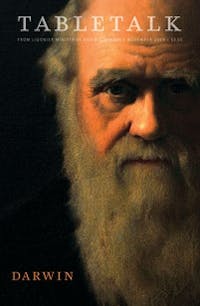
Request your free, three-month trial to Tabletalk magazine. You’ll receive the print issue monthly and gain immediate digital access to decades of archives. This trial is risk-free. No credit card required.
Try Tabletalk NowAlready receive Tabletalk magazine every month?
Verify your email address to gain unlimited access.
The culture wars are heating up again. Such, I suppose, ought not to surprise me. Evangelical professor of sociology James Davidson Hunter published his book Culture Wars in 1992. Therein he argued that the real dividing line in modern culture was not between right wing and left wing, not between Christians and non-Christians, but between the orthodox and the progressives. The orthodox, he argued, were all those who affirmed some sort of transcendent source of truth and morality. The progressives denied the transcendent. The orthodox included then not only evangelical Christians, but conservative Roman Catholics, orthodox Jews, fundamentalist Muslims, and even old-school Mormons. The latter, by contrast, included liberal Protestants, nominal Roman Catholics, unobservant Jews, non-strict Muslims, and doubting Mormons. Our “allies” in the culture war together affirmed that there was a God and that this God has revealed Himself and His will for men. What they disagreed about was who this God is and what He has told us.
Hunter’s work begat more books on the same theme. Michael Horton published Beyond Culture Wars. Peter Kreeft wrote Ecumenical Jihad. Hunter penned a sequel, Before the Shooting Starts. Even David Wells’ trenchant series of theological books, beginning with No Place for Truth, carried a heavy sociological tinge to them. But then, for some reason, the culture wars seemed to die down. Perhaps it was the shock of September 11 that directed our focus elsewhere. That the same kind of rhetoric is rising again, however, at least suggests a different explanation. Could it be that we beat our cultural plows into swords when a Democrat occupies the White House and beat our swords into plows when a Republican holds court?
The culture wars, rightly understood, are ultimately only one manifestation of the broader war first declared in Genesis 3. There God promised the serpent that He would put enmity between him and the woman, between his seed and her seed. He promised in the end that the serpent would bruise the heel of the seed of the woman but also that his head would be crushed. As we remember this reality, and that this war will not be fully finished until Jesus returns, we remember to live our lives in light of this war. We prepare ourselves for battle, and we seek the wisdom to discern who our enemies and friends are, as well as where the battle lines have been drawn.
It is not difficult, for instance, to discern the Devil’s hoof prints all over naturalistic Darwinism. That this is folly is easy enough to discern. Those, on the other hand, who stand ready to affirm the historicity and the inerrancy of the Genesis account of creation are our friends and co-belligerents. Where though, do we place that movement known as Intelligent Design? Are these scholars and scientists friend or foe?
Advocates of Intelligent Design have a great deal going for them. First, they rightly reject the obvious folly of Darwinism. In an age where the acceptance of Darwinian dogma is virtually a loyalty test for acceptance into the academic realm, these men have stood firm and faithful. They have been wounded grievously by our enemies. Second, these good men have made strong, even compelling cases for the necessity of design in the creation of the universe. They are, in a manner of speaking, not only thinking God’s thoughts after Him, but are teaching others to do the same. And third, they have, happily, embarrassed our enemies. Darwinists come off rightly as half-armed when battling wits with ID advocates.
For those of us glass-half-empty people, however, there remain important questions. It is well and good to reject Darwinism. However, this is not at all the same thing as championing the truthfulness of the Word of God. Do we long for the day when the world affirms that there is a maker of heaven and earth or do we long for the day when the world confesses that Jesus Christ, by whom all things were made, is Lord of heaven and earth? Are we, when we seek to answer the question of origins without appealing to the revelation of the Originator, answering a fool according to his folly, as we ought (Prov. 26:5), or are we answering a fool according to his folly as we ought not (v. 4)?
In the end, Christian advocates of Intelligent Design at least have this right — that the God who made the world reveals Himself in and through the world. We need never fear learning from the creation. It, after all, declares His glory day after day. On the other hand, it is not merely the general revelation of God where we must stand, but on the Word of God. There is the solid ground. There is safety and security. We need not seek to curry favor with those who would gainsay the Word of God. We need instead to call them to repentance.
Our allies in the great war are all those for whom our Commander has died. That includes, of course, not just Christians committed to the biblical account of creation. It also includes those committed to Intelligent Design. It even includes those who trust in the finished work of Christ alone, while affirming theistic evolution. All of us, wherever we are on this spectrum, however, need to strive daily to be more faithful to His Word, to be set apart and distinct from the world around us. And all of us are called to love one another along the way.
